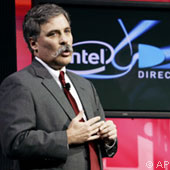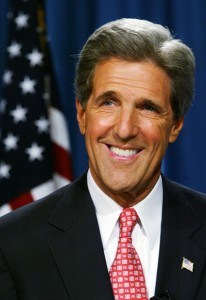Chase Carey, President, Chief Operating Officer of Rupert Murdoch’s News Corp., has blamed the federal government and politicians for giving aid and comfort to Cablevision, the cable system serving most of suburban New York City, forcing Fox to cut off the World Series for millions of subscribers in the recent contract dispute between the two providers.
Carey told Bloomberg News that the standoff with Cablevision would have been resolved much more quickly if lawmakers hadn’t threatened to weigh in, leading the cable provider to hold out in hopes of getting better terms.
“This process would have been resolved more easily, more quickly,” Carey said. “I would actually contend we wouldn’t have gone off the air at all.”
Carey said Fox needs the feeds that it collects from cable companies because even with advertising revenue, the broadcast network loses a “few hundred million dollars” every year. Carey said he came to Washington to explain to lawmakers why Fox needed two streams of revenue and explain why public declarations of support for Cablevision from more than 50 lawmakers only helped to prolong the standoff.
“We’re not running a nonprofit,” Carey said.
If Fox is unprofitable, you wouldn’t know it from Carey’s compensation package. The COO will earn $8.1 million this year, plus a $15 million bonus and additional compensation totaling more than 26 million dollars.
Carey is upset with Democrats for inserting themselves in private corporate matters, despite the fact the resulting dispute left millions of cable subscribers without the networks they were paying for (and forced to fight for refunds from Cablevision.)
“You’re going to bastardize every negotiation because you’re going to have this specter of arbitration,” he said.
At least 50 members of Congress, many from the northeastern United States where cable blackouts have been the most prevalent, support binding arbitration for such disputes, and criticized Fox for demanding increasing amounts of money for formerly free television signals. Cablevision contends it was forced to pay an “unfair amount” to get the signals back on cable.
Carey especially targeted Democratic senator John Kerry from Massachusetts, who was among the most vocal opponents of cable systems and programmers putting viewers in the middle of disputes.
Kerry intends to introduce legislation during the lame duck session of Congress to force both parties to keep programming on while negotiations are underway, especially because consumers have already paid, often in advance, for such programming. Analysts say Republicans in the Senate will likely filibuster any such measure. Most Republicans are inclined to share Carey’s view and let the companies duel it out amongst themselves, according to Andrew D. Lipman, a Washington-based partner with the law firm Bingham McCutchen.
Carey himself has been on both sides of the issue. His former job was chief executive of DirecTV, the largest U.S. satellite-television provider. Carey at the time thought the television networks and local stations were responsible for their own failing business models and were late to the table demanding payments for cable carriage. When the Great Recession caused advertising revenue to plummet, both networks and local stations decided the concept of free, ad-supported television was no longer a viable business model. Now stations want dual revenue streams — ad revenue and payments from the majority of Americans who watch those stations on cable, satellite, or telco-TV.
More importantly, Carey wants the government to butt out, even when consumer dollars are at stake.
[flv width=”640″ height=”500″]http://www.phillipdampier.com/video/Bloomberg Man Who Blacked Out World Series Blames Politicians 11-9-10.flv[/flv]
Bloomberg News reflects on the dispute between News Corp.’s Chase Carey and Cablevision. (3 minutes)


 Subscribe
Subscribe


